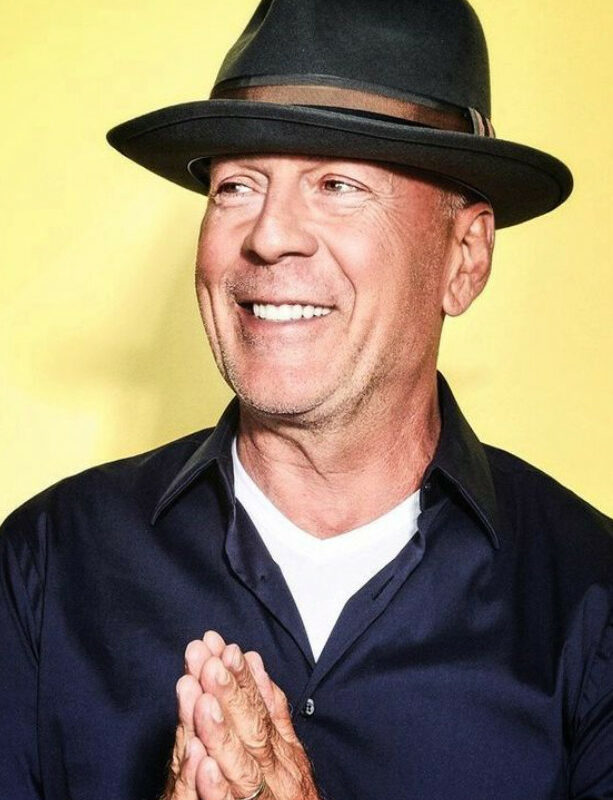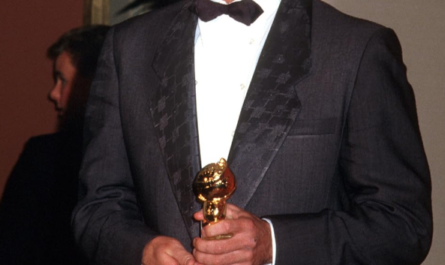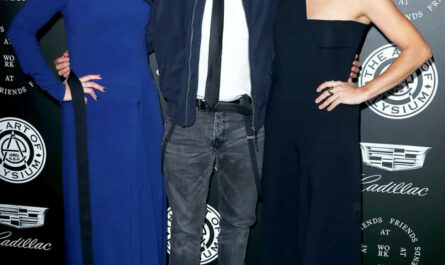In the 1980s, a little show called “Moonlighting” captured the hearts of viewers and launched Bruce Willis into stardom. The show centering around Maddie Hayes, a former model who loses her fortune after her accountant embezzles it, and David Addison, the quirky, fast-talking private investigator she hires to help get her finances back on track. While solving crimes, the pair constantly bantered, sparred, and struggled with romantic tension.
35 years later, Willis still names “Moonlighting” as his favorite show and credits it with kickstarting his monumental career. So what exactly made this offbeat detective dramedy so special and magical to Willis? Let’s break down the key ingredients that turned “Moonlighting” into such a beloved gem.
The Lightning Bolt Chemistry Between Willis & Shepherd
At the core of “Moonlighting’s” charm was the fiery, friction-filled chemistry between Cybill Shepherd’s Maddie Hayes and Bruce Willis’s David Addison. Their clashing personalities and styles played brilliantly off each other while hiding an undercurrent of attraction. Willis has often stated the on-screen connection with Shepherd was instant and electric.
“I remember walking into the room the very first time I met Cybill,” Willis said in an interview. “There was just this crazy energy between us, this friction that worked almost like magic.”
That chemistry immediately jumped off the screen and entranced viewers, proving opposites do attract. Watching Maddie and David trade jabs while solving crimes gave audiences a will-they-won’t-they tension that kept them tuning in week after week. Cybill and Bruce’s contrasting comedic energies fed into the other perfectly. Shepherd brought a refined straight woman role grounded in her modeling background, while Willis countered with his manic improvisational style honed through comedy and theater.
When reflecting on why the show remains so beloved decades later, Willis always returns to the one-of-a-kind alchemy he shared with his female lead.
“What made ‘Moonlighting’ cut through and connect with audiences was this relationship with Cybill,” Willis said at a 30-year reunion event. “It was there from the very beginning, this mixture of fire and gasoline that gave the show its spark.”
The Innovative Writing That Broke the Mold
While the sizzling star duo put eyeballs onto the screen initially, the smart, avant-garde writing kept them glued week after week. Creator Glenn Gordon Caron consciously wanted “Moonlighting” to be more than just another detective procedural show. He envisioned a series that could play with TV conventions while telling complex stories layered with wit and intelligence rarely seen on network television.
Caron achieved this vision by crafting oddly structured episodes often built around a central theme or gimmick. One episode recreated Shakespeare’s “The Taming of the Shrew.” Another paid homage to 1940s film noir using only black and white filming. The writers constantly broke the fourth wall and had characters make meta references about being TV characters.
This postmodern innovation enthralled Willis and perfectly matched his own rule-breaking improvisational energy.
“I just loved how we could shatter all the formulas and rules of what a TV show ‘should’ be,” Willis said. “Every time I picked up a new script, I had no idea what wild new style or convention we might tackle that week. It kept everything feeling fresh and exciting.”
Pushing creative boundaries ultimately became the essence of “Moonlighting” and a fundamental part of its magic for Willis. The show made him feel like he was part of something wholly original rather than sticking to standard TV formulas. The writing flair combined with his own spontaneous acting to create a viewing experience audiences adored despite its refusal to conform.
Role That Let Willis Showcase His Depth & Range
While undoubtedly a comedy at its core, “Moonlighting” stood out for deftly incorporating genuinely dramatic moments amidst the laughs. This unique balance stretched Willis as an actor and allowed him to demonstrate range beyond his knack for humor. Through five seasons, viewers got to see Willis convey it all – passion, yearning, anger, sadness, fear – alongside his natural sharp comic timing.
“I loved the moments where David showed some real emotion beneath that smartass, wisecracking armor,” Willis said. “It let me explore acting muscles I’d never used before, show that I could dig deeper and be more vulnerable.”
Some of Willis’s most poignant performances came in the music montage segments incorporated into most episodes. As Maddie and David worked on cases, emotional flashbacks and dream sequences set to popular 80s ballads let Willis break free from the rapid-fire jokes. Cutting between David’s present quips and painful memories being the orphaned son of a crooked cop showed new gravitas to his acting.
These montages remain indelible parts of the “Moonlighting” legacy because they uncovered Willis’s previously untapped sensitivity. They proved crucial to making David Addison more than just a one-note funnyman, fleshing him out into a living, breathing, heartbreakingly human character. Glimpsing Willis’s serious acting abilities alongside his effortless humor likely surprised viewers at the time but cemented his versatility and star potential.
Launchpad That Made Willis an A-Lister
When cast as David Addison at age 29, Willis was a relative unknown outside of minor film and TV roles plus a mid-level theater career. “Moonlighting” instantly catapulted him onto the A-List map and remains the breakthrough that made him a household name. Being able to showcase the full range of his talent proved that Willis had depth beyond cocky one-liners and blue comedy.
The career momentum coming off “Moonlighting” directly opened the door for Willis’s first major movie role as John McClane in 1988’s “Die Hard.” That career-defining part likely never happens without the star power generated from his breakout TV run. From there Willis’s path to becoming one of Hollywood’s most bankable and beloved leading men was set.
“It’s not an overstatement to say that ‘Moonlighting’ made my entire movie career possible,” Willis said in an American Film Institute tribute. “I literally owe everything to the launchpad that show gave me and the ways it let me show what I could do.”
Three decades, dozens of blockbusters, and billions in box office dollars later, Willis has never forgotten that one eccentric detective show in the mid-80s made it all achievable. Though his catalog of classics expanded vastly after playing David Addison, “Moonlighting” retains a special untouchable spot in Willis’s heart.
A Personal Connection & Lasting Friendships
While the professional success was tremendous, Willis has often stated the personal, lifelong connections formed on “Moonlighting” proved equally meaningful. He formed an enduring brotherhood with Allyce Beasley, who played the quick-witted receptionist Agnes DiPesto. Willis also met his longtime friend and collaborator Walter Hill while directing the pilot episode.
Most importantly, Willis forged an intimate bond with Cybill Shepherd that defiantly has endured beyond their fictional on-screen romance. The two have often referred to each other as soulmates and the ultimate love of their lives despite never officially becoming a real-life item either.
“Cybill and I had this unexplainable, visceral thing between us from minute one,” Willis has reiterated. “Over 30 years later, she’s still the closest female connection I’ve ever experienced. We’ll always be bonded thanks to this magical thing called ‘Moonlighting.’”
This rare mix of professional breakthrough and personal connections wrapped in an iconic role solidified “Moonlighting” as a one-of-a-kind experience in Bruce Willis’s career. Revisiting David Addison will forever feel like reuniting with a beloved old friend who changed everything. Even amidst Willis’ iconic resume of tough guys, heroes, and comic roles, the fast-talking P.I. capable of quick-witted quips and disarming soulfulness stands out.
“Moonlighting was just this magical, unrepeatable moment where all the elements aligned – the cast, the writing, the chemistry,” Willis has stated. “Everything came together to make literal magic. I’ve never recaptured anything quite like it. Which is why David Addison will always be so special to me.”
Over three decades later in a career stuffed with unforgettable parts, David Addison in “Moonlighting” indeed still casts the longest shadow. Off the spark generated between Bruce Willis and Cybill Shepherd, creator Glenn Gordon Caron captured TV lightning in a bottle. The show broke molds, pushed boundaries, took creative risks, forged bonds, and propelled a then-unknown Willis into the Hollywood stratosphere. Even amidst blockbuster smashes like “Die Hard,” “Pulp Fiction,” and “The Sixth Sense,” “Moonlighting” retains a stunning magic and magnetism.
For Bruce Willis, returning to that groundbreaking show with its postmodern flair, heart-racing romance, and career-launching role will forever feel like coming home.



